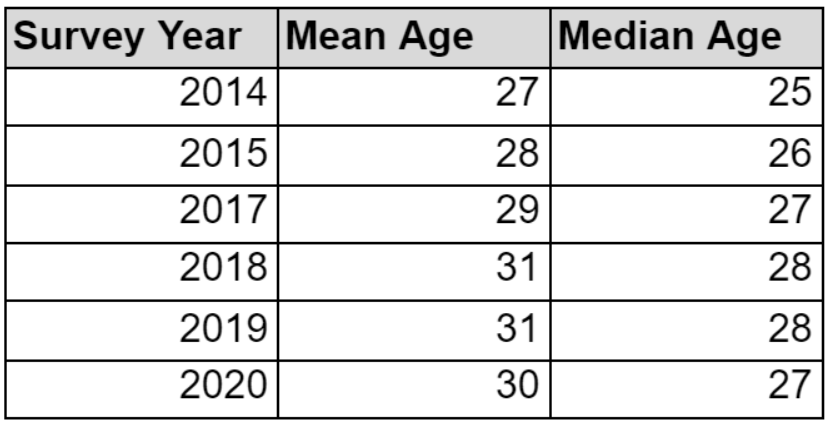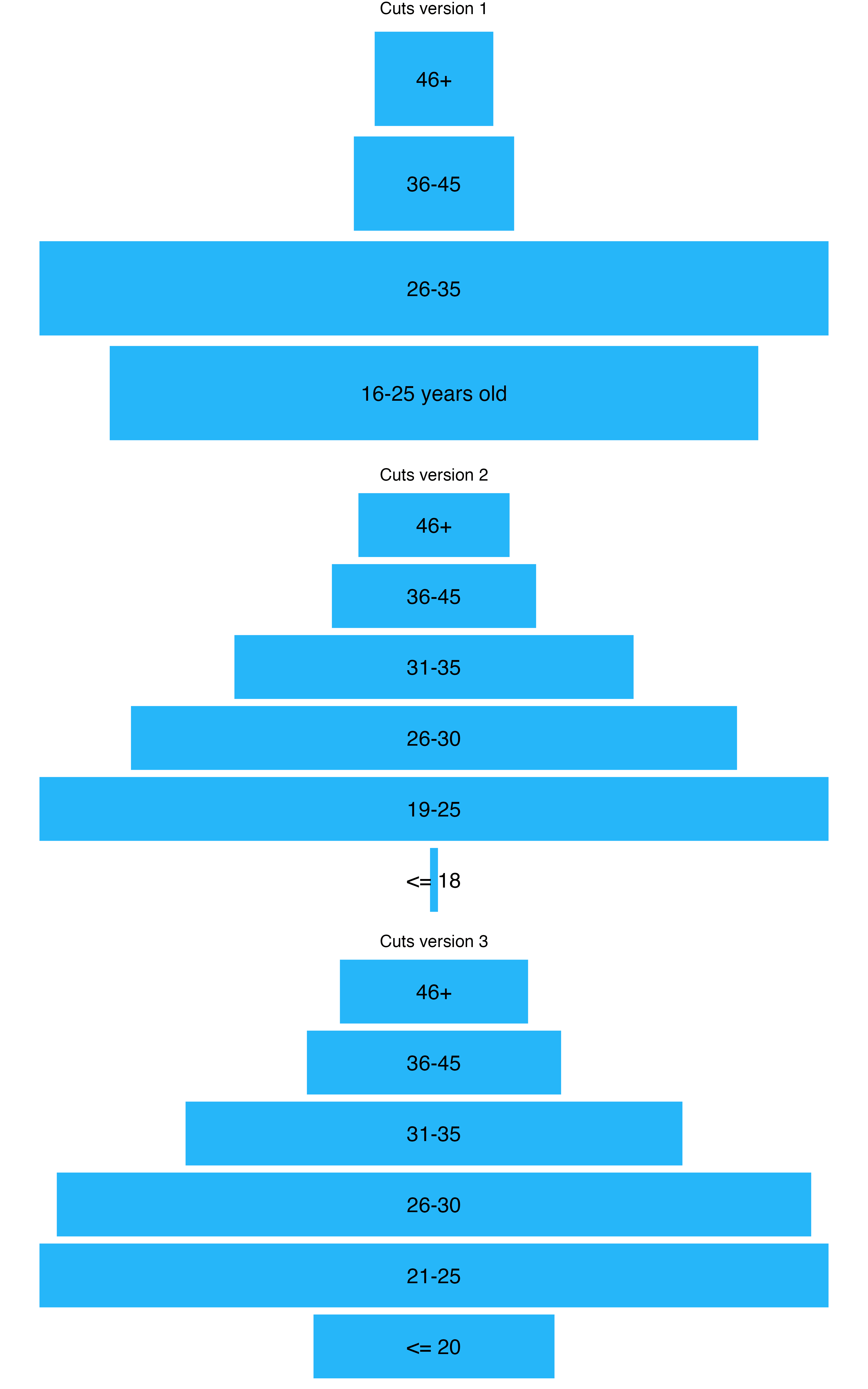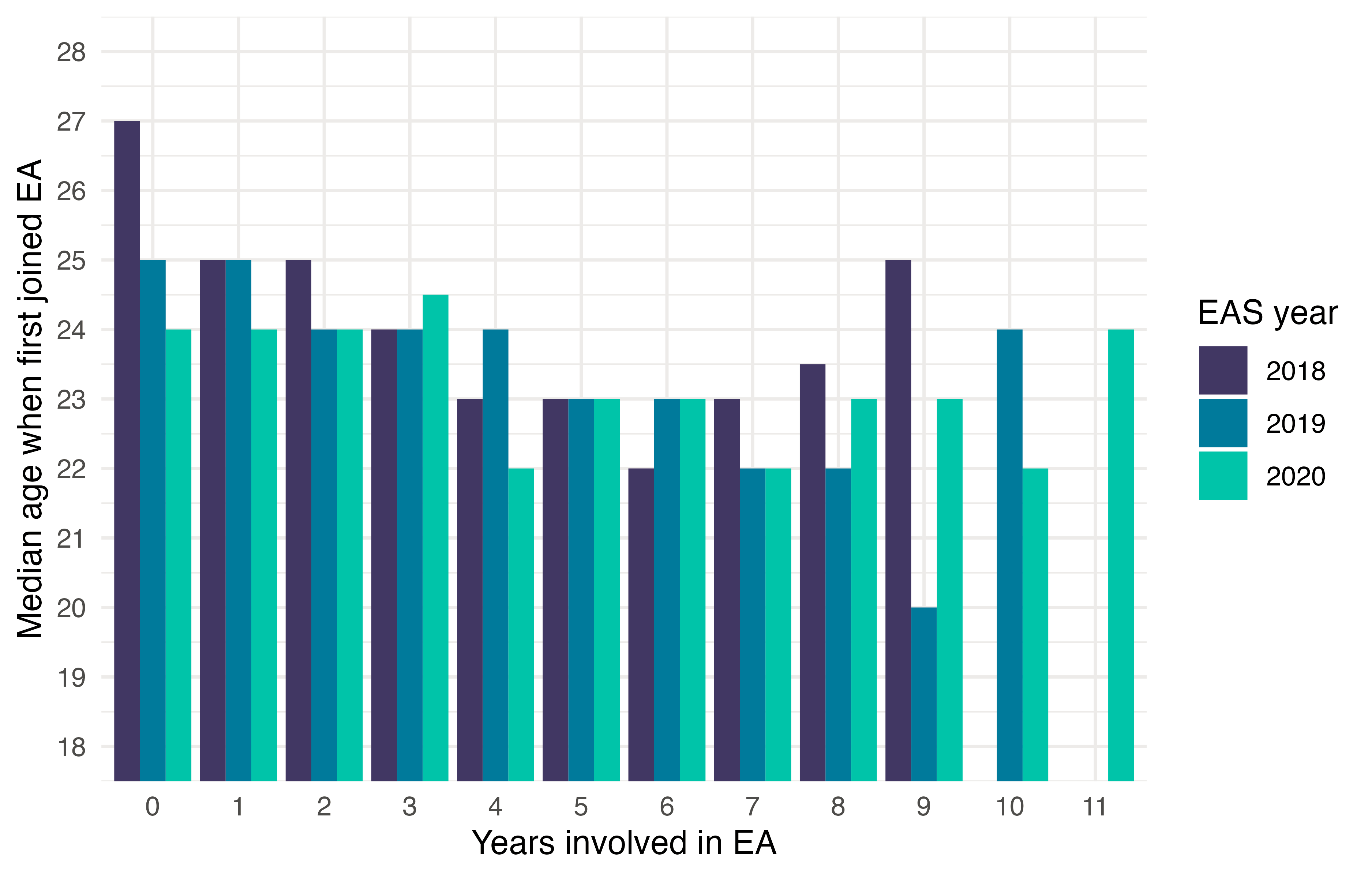Summary
There has been a surge in EA outreach towards university and high school students.
Generally a higher proportion of students show interest in EA compared to professionals, but just because it's easier to get people interested does not mean that it's the most impactful use of time.
This is potentially a mistaken use of limited community building resources and could lead to an imbalance in the age distribution of people interested in EA and bottleneck the future growth of EA or worse, lock EA into being a permanent youth movement.
To improve this situation, EA movement building organisations can make changes in the actions they promote for students. Students interested in community building could work in more neglected areas.
Why has EA community building been focused on students?
It seems that this is a historical coincidence rather than a deliberately chosen path. EA was founded in Oxford, mainly by students, and their initial community building was focused on Oxford, Cambridge and similar universities. Over the last ten years there has been multiple iterations, lessons learned and funding for university group organising. So it isn’t that surprising that there are lots of stories of people who heard about EA in university and then went on to get involved in EA.
This is in contrast to community building efforts for professional, cause and interest groups which have started to become more organised in the last couple of years, with some of them having full time organisers for the first time this year (EA Consulting Network, UK Civil Service). There has been a lot less time to see the potential outcomes of this work in direct comparison to university group organising.
Some people have said that they focus on students because they show more interest in EA than professionals. This is likely true, it definitely seems that it’s easier for students to attend events and get more involved with EA sooner. I think even if students are 10 times more likely to get involved, this may be a mistaken strategy to pursue.
It's a mistake to focus on students
- Professionals have more experience, influence and networks. As EA is growing there is more need for people who have experience managing people and supporting larger organisations. It can take a long time to wait for students to graduate and gain those skills whilst maintaining interest in EA (this may be especially relevant for people with shorter AI timelines).
- If we keep focusing on students we won't be able to fix the mentorship gap. At the moment we have lots of people looking for guidance and very few people able to provide the right level of support. Below there are two age distributions to show how EA currently seems vs what may be a more ideal distribution.


- The average age in EA used to be going up one year every one or two years. The EA survey from 2020 shows that the trend had reversed with the mean and median both going down one year. According to 80,000 Hours the age that people tend to have the most impact is usually 36+.

- EA can give off the impression of being a youth movement. This can lead to professionals bouncing when they encounter EA and assuming that it is not a place meant for them. Even professionals who have been interested for a while may find it hard working directly at EA organisations if there is no consideration for having to support a family, healthcare and uncertainty around funding.
We shouldn't ignore students though
I don’t think we should stop student community building, this is more about what we should do on the margin. There is a lot to be gained by having organisers at the top 20-50 universities. There are also plenty of ways that talented young people can be discovered without going through a university group. For example there are fellowships, essay prizes, grants, volunteering, internships, etc.
Better stories to tell potential student organisers
There are lots of stories of people having been university organisers and many places recommend being a student organiser as a top priority. This means a lot of students will try out community building even when it's not something they have an aptitude for, a strong interest in or the best option for the community as a whole.
Organisations could add nuance or remove these suggestions and encourage other options more strongly. Students at the moment could reconsider whether building a group at their university is actually the best thing to be doing. I've added some ideas below on what students and the EA movement might find to be a more valuable use of time.
- Internships/volunteering at organisations that are impactful or good for career capital
- Running cause specific student groups (AI, x-risks, One for the World, alt protein)
- Supporting other EA projects with their community building work
- Skilling up in more relevant areas than event organising and tabling
In Short
I'm concerned that there is focus on students because the metrics chosen go up faster in the short term without looking at the longer term health of the community.



"If we want to draw in more experienced people, it'd be much easier to just spin up another brand, rather than try to rebrand something that already has particular connotations."
This strikes me as probably incorrect. Creating a new brand is really hard, and minor shifts in branding to de-emphasise students would be fairly simple. In my experience, the EA brand and EA ideas are sufficiently appealing to a fairly broad range of older people. The problem is that loads of older people are really interested in EA ideas- think Sam Harris' audience or the median owner of a Peter Singer book- but they find that: a) It's socially weird being around uni students; b) Few of the materials, from 80k to Intro fellowships, seem targeted to them; c) It's way harder to commit to a social movement.
I've facilitated for EA intro programs with diverse ages, and the 'next steps' stage at the end of an intro fellowship is way different for 20 year olds to 40 year olds- for a 20 year old, basically "Just go to your uni EA group and get more involved" is a good level of commitment, whereas a 40 year old has to make far more difficult choices. But I also feel that if this 40 year-old is willing to commit time to EA, this is a more costly signal than a student doing so, so I often feel bullish about their career impact.
My preferred solutions are fairly marginal, just making it a bit easier and more comfortable for older people to get involved: 1) Groups like 80k put a bit more effort into advice for later career people; 2) Events targeting older high-impact professionals (and more 'normal' older people; EA for parents is a good idea); 3) Highlight a few 'role models' (on the EA intro course, for example, or an 80k podcast guest)- people who've become high-impact EAs in later life.